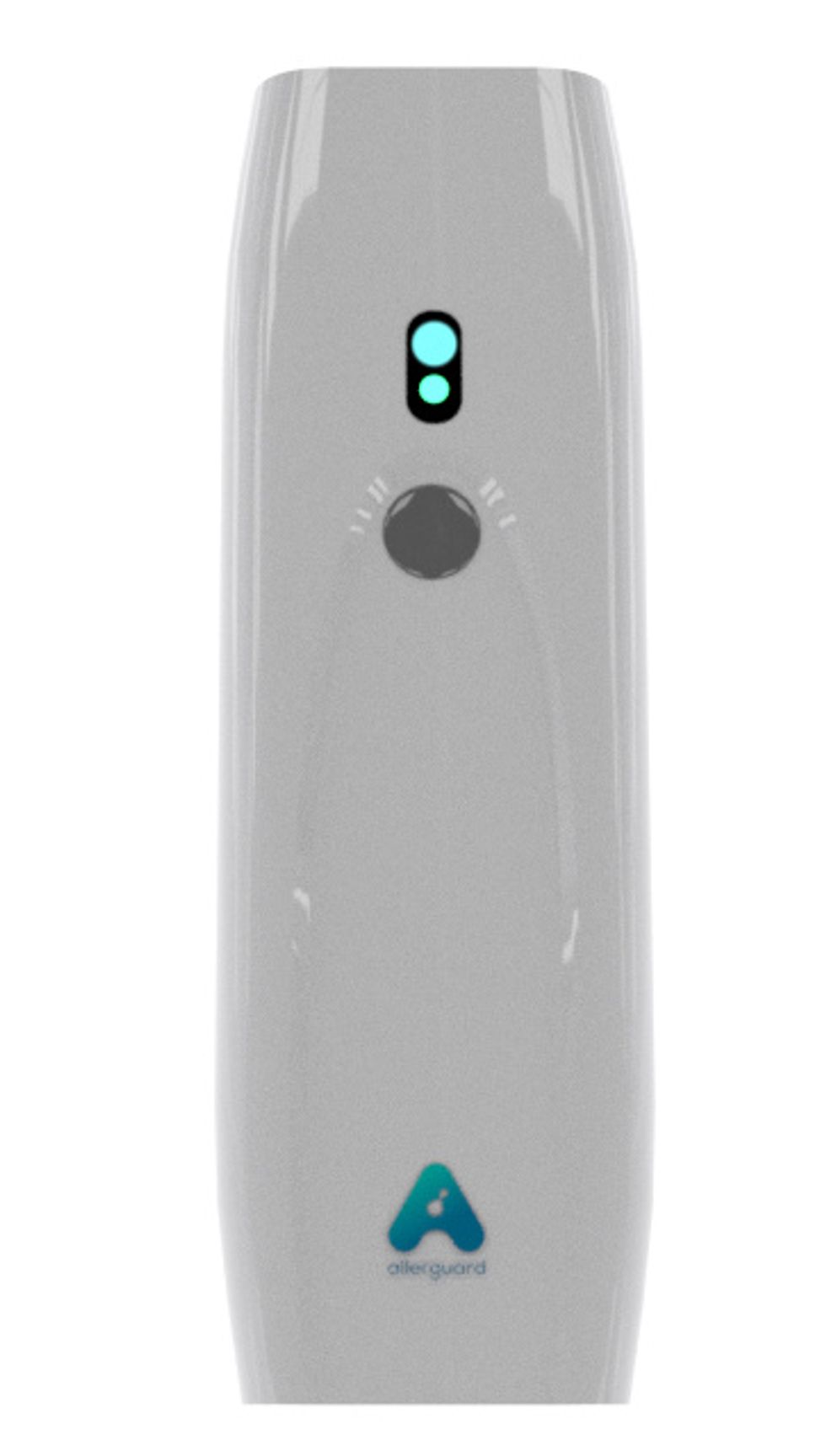What to Know about the Fast-Spreading Delta Variant

A highly contagious form of the coronavirus known as the Delta variant is spreading rapidly and becoming increasingly prevalent around the world. First identified in India in December, Delta has now been identified in 111 countries.
In the United States, the variant now accounts for 83% of sequenced COVID-19 cases, said Rochelle Walensky, director of the Centers for Disease Control and Prevention, at a July 20 Senate hearing. In May, Delta was responsible for just 3% of U.S. cases. The World Health Organization projects that Delta will become the dominant variant globally over the coming months.
So, how worried should you be about the Delta variant? We asked experts some common questions about Delta.
What is a variant?
To understand Delta, it's helpful to first understand what a variant is. When a virus infects a person, it gets into your cells and makes a copy of its genome so it can replicate and spread throughout your body.
In the process of making new copies of itself, the virus can make a mistake in its genetic code. Because viruses are replicating all the time, these mistakes — also called mutations — happen pretty often. A new variant emerges when a virus acquires one or more new mutations and starts spreading within a population.
There are thousands of SARS-CoV-2 variants, but most of them don't substantially change the way the virus behaves. The variants that scientists are most interested in are known as variants of concern. These are versions of the virus with mutations that allow the virus to spread more easily, evade vaccines, or cause more severe disease.
"The vast majority of the mutations that have accumulated in SARS-CoV-2 don't change the biology as far as we're concerned," said Jennifer Surtees, a biochemist at the University of Buffalo who's studying the coronavirus. "But there have been a handful of key mutations and combinations of mutations that have led to what we're now calling variants of concern."
One of those variants of concern is Delta, which is now driving many new COVID-19 infections.
Why is the Delta variant so concerning?
"The reason why the Delta variant is concerning is because it's causing an increase in transmission," said Alba Grifoni, an infectious disease researcher at the La Jolla Institute for Immunology. "The virus is spreading faster and people — particularly those who are not vaccinated yet — are more prone to exposure."
The Delta variant has a few key mutations that make it better at attaching to our cells and evading the neutralizing antibodies in our immune system. These mutations have changed the virus enough to make it more than twice as contagious as the original SARS-CoV-2 virus that emerged in Wuhan and about 50% more contagious than the Alpha variant, previously known as B.1.1.7, or the U.K. variant.
These mutations were previously seen in other variants on their own, but it's their combination that makes Delta so much more infectious.
Do vaccines work against the Delta variant?
The good news is, the COVID-19 vaccines made by AstraZeneca, Johnson & Johnson, Moderna, and Pfizer still work against the Delta variant. They remain more than 90% effective at preventing hospitalizations and death due to Delta. While they're slightly less protective against disease symptoms, they're still very effective at preventing severe illness caused by the Delta variant.
"They're not as good as they were against the prior strains, but they're holding up pretty well," said Eric Topol, a physician and director of the Scripps Translational Research Institute, during a July 19 briefing for journalists.
Because Delta is better at evading our immune systems, it's likely causing more breakthrough infections — COVID-19 cases in people who are vaccinated. However, breakthrough infections were expected before the Delta variant became widespread. No vaccine is 100% effective, so breakthrough infections can happen with other vaccines as well. Experts say the COVID-19 vaccines are still working as expected, even if breakthrough infections occur. The majority of these infections are asymptomatic or cause only mild symptoms.
Should vaccinated people worry about the Delta variant?
Vaccines train our immune systems to protect us against infection. They do this by spurring the production of antibodies, which stick around in our bodies to help fight off a particular pathogen in case we ever come into contact with it.
But even if the new Delta variant slips past our neutralizing antibodies, there's another component of our immune system that can help overtake the virus: T cells. Studies are showing that the COVID-19 vaccines also galvanize T cells, which help limit disease severity in people who have been vaccinated.
"While antibodies block the virus and prevent the virus from infecting cells, T cells are able to attack cells that have already been infected," Grifoni said. In other words, T cells can prevent the infection from spreading to more places in the body. A study published July 1 by Grifoni and her colleagues found that T cells were still able to recognize mutated forms of the virus — further evidence that our current vaccines are effective against Delta.
Can fully vaccinated people spread the Delta variant?
Previously, scientists believed it was unlikely for fully vaccinated individuals with asymptomatic infections to spread Covid-19. But the Delta variant causes the virus to make so many more copies of itself inside the body, and high viral loads have been found in the respiratory tracts of people who are fully vaccinated. This suggests that vaccinated people may be able to spread the Delta variant to some degree.
If you have COVID-19 symptoms, even if you're fully vaccinated, you should get tested and isolate from friends and family because you could spread the virus.
What risk does Delta pose to unvaccinated people?
The Delta variant is behind a surge in cases in communities with low vaccination rates, and unvaccinated Americans currently account for 97% of hospitalizations due to COVID-19, according to Walensky. The best thing you can do right now to prevent yourself from getting sick is to get vaccinated.
Gigi Gronvall, an immunologist and senior scholar at the Johns Hopkins Center for Health Security, said in this week's "Making Sense of Science" podcast that it's especially important to get all required doses of the vaccine in order to have the best protection against the Delta variant. "Even if it's been more than the allotted time that you were told to come back and get the second, there's no time like the present," she said.
With more than 3.6 billion COVID-19 doses administered globally, the vaccines have been shown to be incredibly safe. Serious adverse effects are rare, although scientists continue to monitor for them.
Being vaccinated also helps prevent the emergence of new and potentially more dangerous variants. Viruses need to infect people in order to replicate, and variants emerge because the virus continues to infect more people. More infections create more opportunities for the virus to acquire new mutations.
Surtees and others worry about a scenario in which a new variant emerges that's even more transmissible or resistant to vaccines. "This is our window of opportunity to try to get as many people vaccinated as possible and get people protected so that so that the virus doesn't evolve to be even better at infecting people," she said.
Does Delta cause more severe disease?
While hospitalizations and deaths from COVID-19 are increasing again, it's not yet clear whether Delta causes more severe illness than previous strains.
How can we protect unvaccinated children from the Delta variant?
With children 12 and under not yet eligible for the COVID-19 vaccine, kids are especially vulnerable to the Delta variant. One way to protect unvaccinated children is for parents and other close family members to get vaccinated.
It's also a good idea to keep masks handy when going out in public places. Due to risk Delta poses, the American Academy of Pediatrics issued new guidelines July 19 recommending that all staff and students over age 2 wear face masks in school this fall, even if they have been vaccinated.
Parents should also avoid taking their unvaccinated children to crowded, indoor locations and make sure their kids are practicing good hand-washing hygiene. For children younger than 2, limit visits with friends and family members who are unvaccinated or whose vaccination status is unknown and keep up social distancing practices while in public.
While there's no evidence yet that Delta increases disease severity in children, parents should be mindful that in some rare cases, kids can get a severe form of the disease.
"We're seeing more children getting sick and we're seeing some of them get very sick," Surtees said. "Those children can then pass on the virus to other individuals, including people who are immunocompromised or unvaccinated."
New Device Can Detect Peanut Allergens on a Plate in 30 Seconds
Peanuts on a plate can be deadly for those with severe allergies, but an Israeli startup company wants to alleviate that fear.
People with life-threatening allergies live in constant fear of coming into contact with deadly allergens. Researchers estimate that about 32 million Americans have food allergies, with the most severe being milk, egg, peanut, tree nuts, wheat, soy, fish, and shellfish.
"It is important to understand that just several years ago, this would not have been possible."
Every three minutes, a food allergy reaction sends someone to the emergency room, and 200,000 people in the U.S. require emergency medical care each year for allergic reactions, according to Food Allergy Research and Education.
But what if there was a way you could easily detect if something you were about to eat contains any harmful allergens? Thanks to Israeli scientists, this will soon be the case — at least for peanuts. The team has been working to develop a handheld device called Allerguard, which analyzes the vapors in your meal and can detect allergens in 30 seconds.
Leapsmag spoke with the founder and CTO of Allerguard, Guy Ayal, about the groundbreaking technology, how it works, and when it will be available to purchase.
What prompted you to create this device? Do you have a personal connection with severe food allergies?
Guy Ayal: My eldest daughter's best friend suffers from a severe food allergy, and I experienced first-hand the effect it has on the person and their immediate surroundings. Most notable for me was the effect on the quality of life – the experience of living in constant fear. Everything we do at Allerguard is basically to alleviate some of that fear.
How exactly does the device work?
The device is built on two main pillars. The first is the nano-chemical stage, in which we developed specially attuned nanoparticles that selectively adhere only to the specific molecules that we are looking for. Those molecules, once bound to the nanoparticles, induce a change in their electrical behavior, which is measured and analyzed by the second main pillar -- highly advanced machine learning algorithms, which can surmise which molecules were collected, and thus whether or not peanuts (or in the future, other allergens) were detected.
It is important to understand that just several years ago, this would not have been possible, because both the nano-chemistry, and especially the entire world of machine learning, big data, and what is commonly known as AI only started to exist in the '90s, and reached applicability for handheld devices only in the past few years.
Where are you at in the development process and when will the device be available to consumers?
We have concluded the proof of concept and proof of capability phase, when we demonstrated successful detection of the minimal known clinical amount that may cause the slightest effect in the most severely allergic person – less than 1 mg of peanut (actually it is 0.7 mg). Over the next 18 months will be productization, qualification, and validation of our device, which should be ready to market in the latter half of 2021. The sensor will be available in the U.S., and after a year in Europe and Canada.

The Allerguard was made possible through recent advances in machine learning, big data, and AI.
(Courtesy)
How much will it cost?
Our target price is about $200 for the device, with a disposable SenseCard that will run for at least a full day and cost about $1. That card is for a specific allergen and will work for multiple scans in a day, not just one time.
[At a later stage, the company will have sensors for other allergens like tree nuts, eggs, and milk, and they'll develop a multi-SenseCard that works for a few allergens at once.]
Are there any other devices on the market that do something similar to Allerguard?
No other devices are even close to supplying the level of service that we promise. All known methods for allergen detection rely on sampling of the food, which is a viable solution for homogenous foodstuffs, such as a factory testing their raw ingredients, but not for something as heterogenous as an actual dish – especially not for solid allergens such as peanuts, treenuts, or sesame.
If there is a single peanut in your plate, and you sample from anywhere on that plate which is not where that peanut is located, you will find that your sample is perfectly clean – because it is. But the dish is not. That dish is a death trap for an allergic person. Allerguard is the only suggested solution that could indeed detect that peanut, no matter where in that plate it is hiding.
Anything else readers should know?
Our first-generation product will be for peanuts only. You have to understand, we are still a start-up company, and if we don't concentrate our limited resources to one specific goal, we will not be able to achieve anything at all. Once we are ready to market our first device, the peanut detector, we will be able to start the R&D for the 2nd product, which will be for another allergen – most likely tree nuts and/or sesame, but that will probably be in debate until we actually start it.
Dr. Robert Montgomery, the director of NYU Langone's Transplant Institute, is ironically the recipient of a heart transplant.
[Ed. Note: This is the fourth episode in our Moonshot series, which explores four cutting-edge scientific developments that stand to fundamentally transform our world.]
Kira Peikoff was the editor-in-chief of Leaps.org from 2017 to 2021. As a journalist, her work has appeared in The New York Times, Newsweek, Nautilus, Popular Mechanics, The New York Academy of Sciences, and other outlets. She is also the author of four suspense novels that explore controversial issues arising from scientific innovation: Living Proof, No Time to Die, Die Again Tomorrow, and Mother Knows Best. Peikoff holds a B.A. in Journalism from New York University and an M.S. in Bioethics from Columbia University. She lives in New Jersey with her husband and two young sons. Follow her on Twitter @KiraPeikoff.

